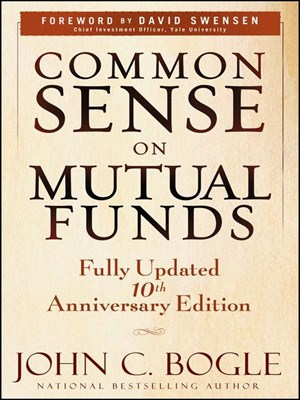Related Topics
Right Angle Club: 2015
The tenth year of this annal, the ninety-third for the club. Because its author spent much of the past year on health economics, a summary of this topic takes up a third of this volume. The 1980 book now sells on Amazon for three times its original price, so be warned.
"Scores of Centimillionaires"

|
| John Bogle |
John Bogle is an investor with an evangelistic twist. He sold over 800,000 copies of his various books about Mutual Funds, donating the royalties to charity. One theme running throughout his writing is that no unmargined investment manager can focus exclusively on equities in his portfolio and expect to have a higher return than the index itself, whether he is an index investor, or is more activist as a portfolio manager. About five or ten percent of managers do beat the index each year, but they are general managers of small funds, and generally cannot repeat the performance consistently. It's a very useful message since the conclusion seems to follow that if a manager simply imitates the index, he will surely reduce his research costs, and will therefore almost surely have consistent final results which beat the average competitor. Ultimately, the best results will be found in long-term index funds with the lowest costs. That's a conclusion both logical and borne out by results; no amount of denial can refute the logic of it.
However, it is also possible to take it as a challenge. What approaches might be tested, to see if they can beat it? Mr. Bogle himself admits success might defeat a front-runner, by attracting so many investors the portfolio is forced to limit itself to large-size when the supply of frisky small stocks gets used up. If the small newcomers out-perform the blue chips, average big-fund performance will suffer by comparison with small boutique funds. Indeed, small-fund indices often display a 2% outperformance, compared with large-cap indices. It would probably be useful to consider closing a large fund to new purchases when the average size of its investment is forced to contract downward. Since such a reaction benefits the investors but not the managers, the right to close or reopen funds should be transferred to the shareholder investors.

|
| Common Sense on Mutual Funds |
New Tools. It is common for mutual funds to limit or forbid short-selling, as well as buying on margin. That's obviously less risky than engaging in such activity, but most investors understand greater returns require greater risk. That seems to be the approach adopted by hedge funds, although the success of it is often shrouded in secrecy for good reason, and has nothing in common with other stockmarket talents like demanding high fees. The main limitation on hedge fund competition comes from the excessive fees (2% annually, regardless of profits, plus 20% of profits themselves, and a five-year lock-in.) In effect, such activities can be simulated by funds controlled by a single university or pension fund. A fund with a large float of incoming deposits can treat the float as a virtual loan, and an organization which needs to mortgage a large construction project can treat the construction loan on the building as a virtual mortgage on the stock portfolio. It might further be argued that other organizations without a stock portfolio are overweighted in fixed assets whenever they take out a mortgage. Closed-end investment trusts seldom leverage overtly, but they usually are sold at a 10-20% discount to net asset value, and thus are effectively leveraged. Warren Buffett, the greatest stock market manager in history, owes much of his success to buying an auto insurance company outright and then using its float from premium deposits as if they were part of his portfolio. He tends to buy entire companies; their dividends disappear. In special circumstances with 1% prevailing interest rates, it can be difficult to make the case that borrowing is too risky for long-term investments; the issue now is liquidity.
And one final warning. When too many people get overleveraged, by whatever method, they generally sense the approaching dangers but often are restrained from selling by the tax consequences they would experience. But when it looks as though everybody sees the same thing, there may be a rush for the door. It's called a crash. So don't you dare buy on margin? Let me do it, and together we'll blame the speculators.
REFERENCES
| Common Sense on Mutual Funds: Fully Updated 10th Anniversary Edition: John C. Bogle ISBN: 978-0470138137 | Amazon |
Originally published: Tuesday, February 24, 2015; most-recently modified: Thursday, May 09, 2019